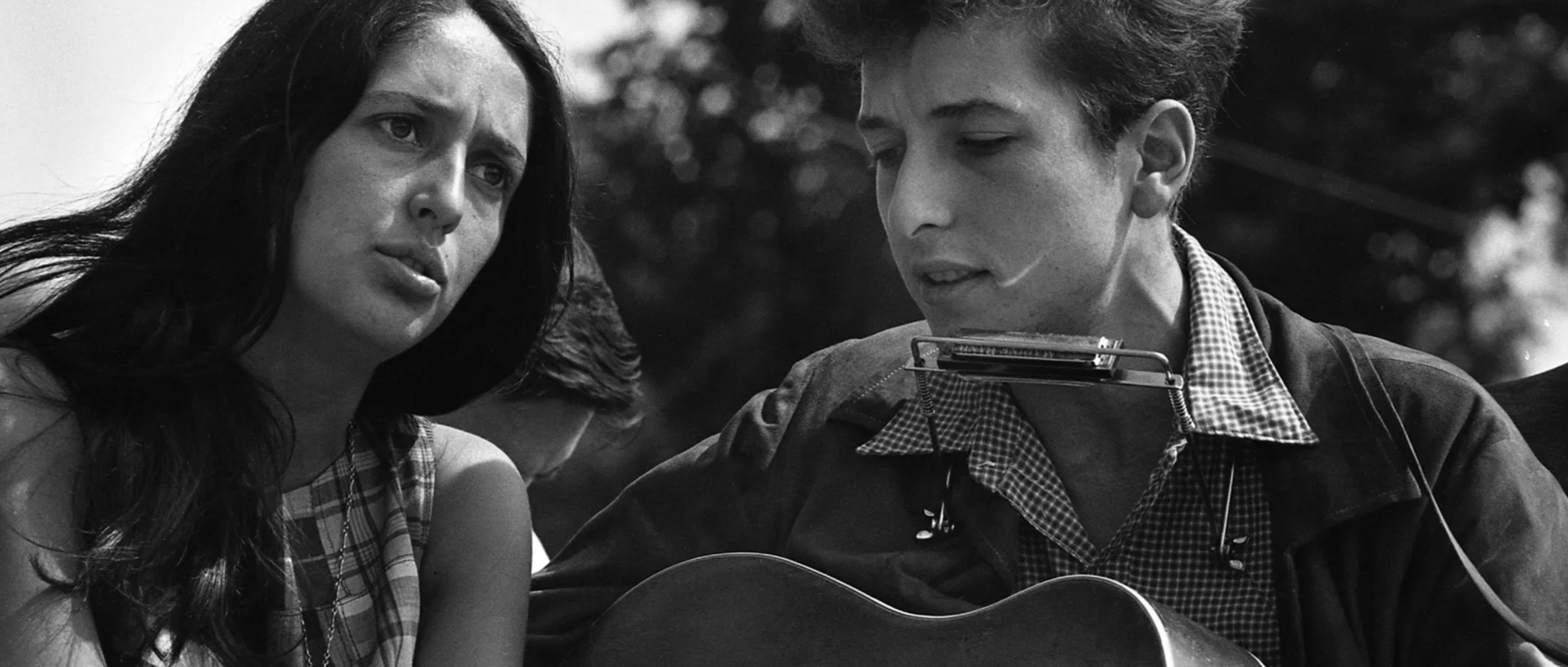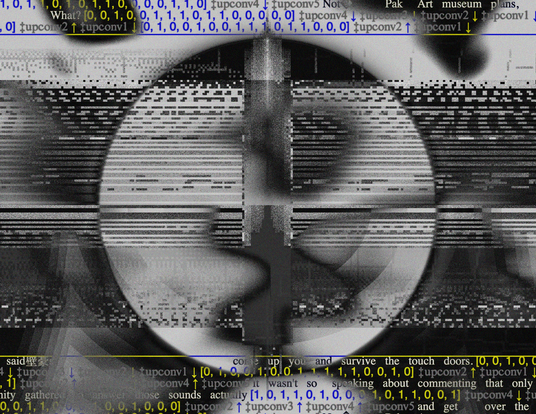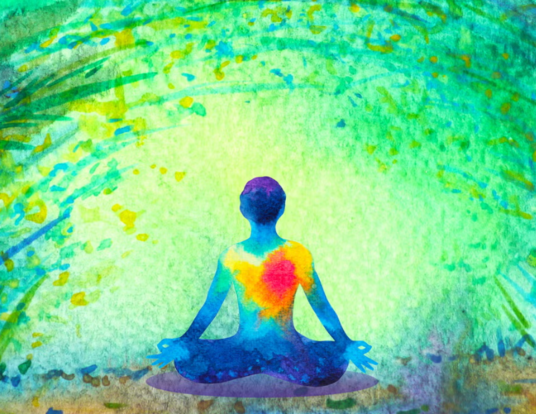Colloquy Podcast: Bob Dylan—From A Complete Unknown to A Prophet Without God

Research at Risk: Since World War II, universities have worked with the federal government to create an innovation ecosystem that has yielded life-changing progress. Now much of that work may be halted as funding is withdrawn. Find out more about the threats to medical, engineering, and scientific research, as well as how Harvard is fighting to preserve this work—and the University's core values.
With filmgoers buzzing about the Bob Dylan biopic, A Complete Unknown, University of Pennsylvania Professor Jeffrey Edward Green, PhD ’07, says that the legendary singer and songwriter is more than a musician; he’s the conflicted prophet of a fallen world. In his new book, Bob Dylan, Prophet Without God, Green writes that Dylan models, "how to practice self-reliance in a world of permanent injustice and suffering, without appeal to divinity and providence, and without the self-satisfaction of believing he is also adequately fulfilling his social responsibility, or abiding by an individualism that everyone is equally free to practice if they wish." In that sense, Green contends, Dylan “has bestowed a message uniquely suited to a time such as ours."
The following transcript has been edited for clarity and correctness.
So, it's an audacious title for your book, Prophet Without God. And when I saw that, the first question that came to my mind was, can there be such a thing? Isn't a prophet, by definition, someone who experiences divine revelation, and then acts as a kind of spokesperson for God, sort of bringing God's message to the community?
Yeah, well, thank you. I used that title above all, to refer to Dylan as a prophet who does not have ultimate answers. Normally, we expect from our prophetic figures some direction. Now, I think, in fact, that the nature of that direction, if one looks at the history of the prophetic conscience, has involved not just direction about divine matters, but also to other issues, social justice, and the call for individual freedom.
And my point in calling Dylan a prophet without God is, that he wrestles with all three of those foundations of normative direction—God proper, social justice, and individual freedom—but that he doesn't give a final answer about which of those to follow, or about whether the three are ultimately in harmony with each other.
Indeed, the overarching argument of my book is that Dylan is so unusual as a prophetic figure because he speaks to the collisions between those three values—freedom, and justice, and adherence to God—and thus, diverges from what is the far more normal prophetic standpoint, which is either to say, the good news that all three values are achieved simultaneously, and one can find something like that message, say, in Martin Luther King or Gandhi.
Or, as is also more common, for the prophetic figure to privilege one of those values at the expense of the other two. Abraham's binding of Isaac had very little to do with justice or his own freedom but was about piety to God at the expense of the other two. Dylan is a prophetic figure in addressing not just God, but these other two values that I think are essential to the prophetic conscience but is different from the tradition in testifying again to the conflict that I believe he understands besets these values.
You characterized Dylan as a "prophet of diremption." What do you mean by that?
By diremption simply what we've already discussed, the idea that things don't coalesce, that they don't combine, but they're in tension with each other. And the typical prophetic standpoint is not a diremptive one. It's a clear message about what to do, either about one of those three values or all of them together. And Dylan is so interesting, I think, prophetically speaking, because again, he's at his most distinct, prophetically speaking, when he testifies to the conflict or diremption of the prophetic inheritance of these normative foundations. So, I simply mean being at odds, not being unified, not being in harmony when I use that word diremption.
You've already referred to the three main modes of Dylan's prophetic contribution. Let's talk about the first. How do his life and work exemplify the tension between individual freedom and justice? And how do they testify to what you call in the book, "his lack of full moral goodness?"
Yeah, this is the topic of one of my three main parts of the book. And Dylan, as many people know, sang about social justice issues, and was associated with the civil rights movement for a while. He railed against racism, against poverty, against militarism. He was seen by many as playing a leading role in the civil rights movement as an “anthemiser” of it.
But he also stands out as an icon of self-reliant individuality, of someone who goes his own way against all forms of conformism and social organization. And I think that for Dylan, these two commitments are not in harmony with each other, that he very unusually withdraws from activism within the civil rights movement, and makes statements to that effect, sings about it in very memorable songs from the mid-60s. And I take this to be such an unusual posture.
There are so few people I know of in the history of political thought who are associated with the social justice movement the way that Dylan was with the civil rights movement, but then publicly say, I'm not going to do it anymore. And I'm not going to do it anymore not because I disagree with it. Dylan says, oh no, it still needs to be done, but I, Bob Dylan, I'm not going to devote myself devotedly to it any further. It's a very unusual public pose.
Many of us live this way and don't do all our moral conscience tells us we ought to be doing, but very few of us admit as much. The only two figures I'm aware of who do something roughly similar are Ralph Waldo Emerson and Henry David Thoreau in the nineteenth century, who themselves acknowledged not being fully committed to anti-slavery, even though they were very active in that movement, among other causes. And yet, here, too, I think Dylan is different.
This is part of what I mean by the conflict between ultimate values. One might expect someone to say, “I’m here to tell you, be free and don't worry about social justice,” or, “I'm here to tell you, care about social justice and don't worry about your individual freedom,” or, “I'm here to tell you that they're both needed and you can achieve them together.”
Dylan, again, in memorable statements and songs, seems to be saying, I can't have both. It's a puzzle. And when I pursue my self-reliant individuality, I'm doing so at the expense of pursuing social justice. And I think why I find that moving and important is that, again, so many of us, especially we who are bourgeois, who are relatively comfortable, surrounded by injustice and suffering and choose our own comfort, often at the expense of helping others, I find Dylan a model of an honesty towards a posture that many of us are in somewhat denial about.
I would love it if you could talk a little bit about how that plays out in his songs.
Well, on the level of statements, consider an interview he gave in 1964, where he says of the civil rights movement, I agree with everything that's happening, but I'm not part of no movement. If I was, I wouldn't be able to do anything else but be in the movement. I just can't have people sit around and make rules for me. I do a lot of things no movement would allow. That's on the statement level.
On the song level, "Maggie's Farm," "But everybody wants you to be just like them. They say ‘Sing while you slave,’ and I just get bored. I ain't going to work on Maggie's farm no more."
And I read "Maggie's Farm" as kind of a reference to something like Brook Farm from the 19th century, these collective efforts at cooperation and justice.
And Dylan seems to be saying, I'm not going to do it, not because it's wrong, but because it's boring, or from, "It's All Right, Ma (I’m Only Bleeding)," "Watch waterfalls of pity roar. You feel to moan, but unlike before, you discover that you'd be just one more person crying."
The problem with being motivated by pity and compassion, again, is not that it's wrong, but it's conformist. You'd just be yet another person engaged in a pursuit that would be flattening of your individuality.
More provocative would be the line from "Positively 4th Street." "I know you're dissatisfied with your position and your place. Don't you understand? It's not my problem.”
A confident turning of one's back on a suffering other, and yet not, in my view, an insistence of being in the right. And that's what's so special about Dylan in the mid-60s, confidence in turning his back against social justice in the name of his individuality, but not a moral justification.
And I think this standpoint continues to percolate in later moments of his career. There's that memorable line from "Idiot Wind" in the 70s. "I can't help it if I'm lucky." Well, you can. You can, a little bit. You can try to redress some unfairnesses and so forth. But Dylan is saying, I'm not going to do it.
And again, I think most of us who are bourgeois live this way. And yet, very few of us acknowledge it. But those would be some examples from his songs.
You write in your book about Dylan's phase from 1979 to 1981, where he was an evangelical Christian. Talk about his capacity to communicate religious topics to those who are for lack of a better term, godless, but not with the aim of converting them but of conveying to them the validity of a religious worldview.
Right. At the heart of my book is the analysis of what I take to be unusual prophetic gestures. And we've just spoken about one of them that Dylan in the mid-60s seems to be someone who is prophetically announcing his lack of full moral goodness. And that's unusual. And now, we come to the late 70s, into the early 80s when Dylan has a conversion experience and becomes an evangelical Christian.
On the one hand, that's relatively familiar as a prophetic standpoint. Dylan would be just one more Christian professing Christianity in a still largely Christian world. But as your question alludes to, I read Dylan as doing something fairly distinct in so directly dealing with secularists—that is, militant atheist audiences, who harangued him, and mocked him, and criticized him, but also could not help but be perhaps disciplined and educated by him in the late 70s and early 80s. Dylan’s unusual as a prophetic figure of Christianity for so directly dealing with atheists.
Part of that is structural. He was a rock and roll star whose audience was disproportionately secularist. But part of it is that the level of the content of his religious ideas. And I go into some detail about this in part two of the book.
But the punchline is that Dylan is especially good in instilling in militant atheists not a sense that they should become Christians—although, there is some evidence of conversions that he's helped to launch—but that they could be, that the religious choice is more plausible after confronting the work and conversion experience of Dylan himself.
And I could go into some detail about why I think that is, but I take that to be itself unusual that Dylan, as I say in the book, is a prophet unusually relevant for the godless, again, disciplining in the godless, a respect for religiosity, the plausibility that they could become religious too, which is different than a proselytizing you have to become Christian.
One of the dynamics I point to in the book is how Dylan reconceives the human construction of religion. Very often, it's critics of religion who like to emphasize the human construction of religion, that God didn't make human beings, human beings created gods. Human beings created religion, and therefore, religion is illusory, fictive, something we should get beyond. You see something like that very critical view of religion in the Marxist tradition, let's say.
And one of the interesting moves that Dylan makes is singing songs of religious prayer that are directed to concrete human others who help to inspire his own coming into faith. Songs like "Covenant Woman," or "Precious Angel" are about actual women, perhaps, female backup singers with whom he had romantic relations, who helped to make his own faith come to fruition and be strong.
And I think there's a lot of interesting biographic material from Dylan's life going all the way back to his childhood, that he was always fascinated by other peoples' religion, even if he wasn't himself a clear adherent of organized religion until his conversion.
His mother said, as a child in Hibbing, Dylan would go around and frequent not just his own local synagogue, but all the various churches in the city. It's a very unusual standpoint, as far as I can tell. And I trace other moments in the early 70s and mid-70s of Dylan continuing to do this with espousals of religious faith being, what he ultimately encourages secularists to be respectful of and interested in the religious other, aware of the potential possibility of becoming religious oneself.
But his sometime girlfriend, Mary Alice Arts, with whom he had a relationship in the late 70s, reconnected to her own Christianity, and as a result, she refused to live with Dylan.
She said, “We can't live together if we're not married.” And supposedly, that blew him away. How could someone care so much about something like that and have it be so meaningful? And I think that that proved impactful for his own conversion, and again, became a topic of his music.
And that's something that an atheist can understand, that there are people who can make us more or less spiritual, more or less religious, by being in their presence. And that's the prayer that Dylan enunciates in songs like that. I still, on this point of the human construction of religion in songs like "Watered Down Love," or "Property of Jesus," Dylan is focusing on the sociopolitics rather than metaphysics of religiosity.
He's expressing his vitriol at the condescension with which nonbelievers treat believers and objecting to it. And so if that's your perspective, that becomes a very human and relatable way to think about religion that doesn't require you believe in speculative objects of religious belief.
Let's talk about this third mode of Dylan's prophetic contribution, which really took me by surprise. It's his pessimism. What's the value of his reflections on the fallenness of the political world? And how do they make him a prophet?
Well, again, we're talking about unusual prophetic gestures. We've talked about in the 60s, Dylan, the prophet who says I'm not good, in effect. Dylan in the late 70s, early 80s, who is a prophet unusually good for speaking to the godless.
And now, in this third moment of the book, the third main part, I talk about a longstanding, as you say, pessimism about politics that I think is consistently expressed by him through his 60-plus years on the public stage. He has very dark things to say about the possibilities for peace and for justice on the world level, really thinking that that's not a realistic aspiration.
And we usually expect our prophetic figures to show us the way towards redemption in this world, or if not, in a world to come. And I think Dylan resists those standpoints, and nonetheless, in meditating on the fallenness of our political world, does suggest some ethical type of direction. I'm very much drawn by his song "When Are You Going to Wake Up?" which is based actually on a line from the Book of Revelation. "When are you going to wake up and strengthen the things that remain?" That's the name of the third part of my book, strengthen the things that remain.
And here, the idea is, if we recognize that some things are unavailable to us, are like being asleep, or dream-like, we can at least focus in on what is achievable. And that I think, to be the crux of Dylan's prophetic summons here.
But what's so interesting about it, to me at least, is that in arguing for this, Dylan doesn't just indict idealists, but what's known in political theory as realists, people who themselves would seem to be a little bit pessimistic about the possibility of justice in the world.
Dylan, as I trace in the book, was a reader of Thucydides, a great realist in political thought, a reader of Clausewitz. He references Kissinger. And so there's this line in that song that I mentioned where Dylan says, "Karl Marx has got you by the throat. Henry Kissinger has got you tied up in knots."
The first half of that is understandable. Marx is like a metonym for idealism, and that's like being asleep. You shouldn't focus on too much perfection of justice and peace. Let's try to do something more moderate and achievable.
But what's interesting is, why is Kissinger as a metonym for realism, a type of being asleep? And I think this becomes how I situate Dylan in part three of the book, as a “realer” realist, as someone who shares Thucydides, Clausewitz, Kissinger's sense of politics being irreducible to morality, but unlike them, pitches this whole matter from the perspective of an ordinary person, not a great statesman, and isn't inspired by how we can achieve political mastery in a fallen world, but how an ordinary person can achieve relatively more ethical integrity, or positive results in a fallen world.
And I know as I've put it so far, it's a bit abstract. So let me give you an example. I spend some time analyzing Dylan's 1963 (I believe) song, "Let Me Die In My Footsteps," which was written against the fallout shelter movement in a moment of heightened worry about nuclear war. The punch line of the song is [paraphrasing], “I'm not going to go down under the ground in a fallout shelter and try to protect myself. If I'm going to die, I want to die above ground.” And so that's very pessimistic.
It's not, how can we avoid nuclear disaster, but how do I want to face it? But it also has some edge to it. It also has some pushback to power. Because part of what Dylan does in that song is suggest that some element of the nuclear fears being propagated at the time were illusory, were being purposefully put out there for other reasons besides their accuracy.
And I think, indeed, Dylan's been proven correct about this, that it seems that part of what motivated the US government to propose the wisdom of building fallout shelters was the government's interest in showing the Soviets the US's willingness to use nuclear weapons. And so, it wasn't about the actual safety of fallout shelters, but about instrumentalizing the American people, maybe for their long-term benefit, but, in the short-term, by maximizing their fears.
And Dylan calls that out in real time. And I think that's an example of being a pessimist with some ethical edge and meaning, in monitoring and regulating his own fears and not having the government decide for him exactly when or where one should be afraid.
And just, very briefly, another example I give in this strengthening the things that remain and trying to push back against both Marx and Kissinger as metonyms of idealism and realism would be Dylan's distinction between, what I call, emergency politics and conventional electoral politics. In the US, maybe the knee-jerk reaction is to associate politics with our elections. We just had a major election in the US. It comes very naturally to assume that that's what politics is for many people.
Dylan frustrates that definition of the political. He doesn't like to say whether he voted for Obama in 2008 or whether he voted at all. And against that focus on elections, he seems to, in some songs and statements, support the idea of caring for those in need, who are hungry, who are orphaned, et cetera. And he makes you wonder, I argue, about whether, to some degree, our focus on elections can crowd out a more direct and immediate concern with helping concrete people.
So that might be another example of waking up and strengthening the things that remain, that feeds off of a pessimism about ever having full justice, but is not directionless, but leads somewhere concrete.
The characterization of Dylan as a prophet of diremption, for me, called to mind the Book of Job in the Hebrew Bible, you know, how God curses Job. Despite his faithfulness, he destroys his prosperity, he kills his loved ones, he wracks his body with pain. And you write that Dylan, who was born and raised Jewish, sings about a human realm that is mired in violence, oppression and injustice. So is this comparison with Job valid? And if it is, do you think Dylan isn't a prophet without God, but a prophet, maybe, wrestling with God?
I think that there is some parallel in the world that Job endures and Dylan's conception of our political world as a fallen space. I think that Dylan is a prophet without God, in the ultimate sense, for me, that he doesn't have an underlying, single, final message. He's not telling you how to achieve freedom, once and for all, or whether to achieve it vis-á-vis justice or adherence to God.
And he is suggesting that these commitments are not fully combinable, that there are tensions between them, and one can't have it all. And just which permutation of them one should choose, he, himself, tries out different versions of and, maybe, invites us to search, on our own terms. So that's what I mean by a prophet without God.
But contained in that larger sense of what I mean is a wrestling with God. Part of being a prophet without God, for Dylan, is having different relationships to God, over the course of his life—being associated, if not with atheism, with a skepticism towards organized religion, in the earlier part of his life, when he was an icon, for many, of religious skepticism, and individualism, in general. Then, having a gospel period, that we talked about, when he was a fervent believer, indeed, a sermonizer on the stage, for a few years, in '79 and '80.
And then, this third period, that I think he's still in, this post-conversion period, where he hasn't renounced his Judeo-Christianity if you want to call it that, but no longer sings with it, sings about it, with the same fervor and, sometimes, has songs and comments colored by profound religious doubt.
And so, I think he is a wrestler with God. And that would be one part if this doesn't—I hope this makes sense—of being a prophet without some underlying, overarching answer, and, in that sense, a prophet without God.
The Colloquy podcast is a conversation with scholars and thinkers from Harvard's PhD community on some of the most pressing challenges of our time—from global health to climate change, growth and development, the future of AI, and many others.
About the Show
Produced by GSAS Communications in collaboration with Harvard's Media Production Center, the Colloquy podcast continues and adds to the conversations found in Colloquy magazine. New episodes drop each month during the fall and spring terms.
Talk to Us
Have a comment or suggestion for a future episode of Colloquy? Drop us a line at gsaspod@fas.harvard.edu. And if you enjoy the program, please be sure to rate it on your preferred podcast platform so that others may find it as well.
Get the Latest Updates
Join Our Newsletter
Subscribe to Colloquy Podcast
Simplecast





